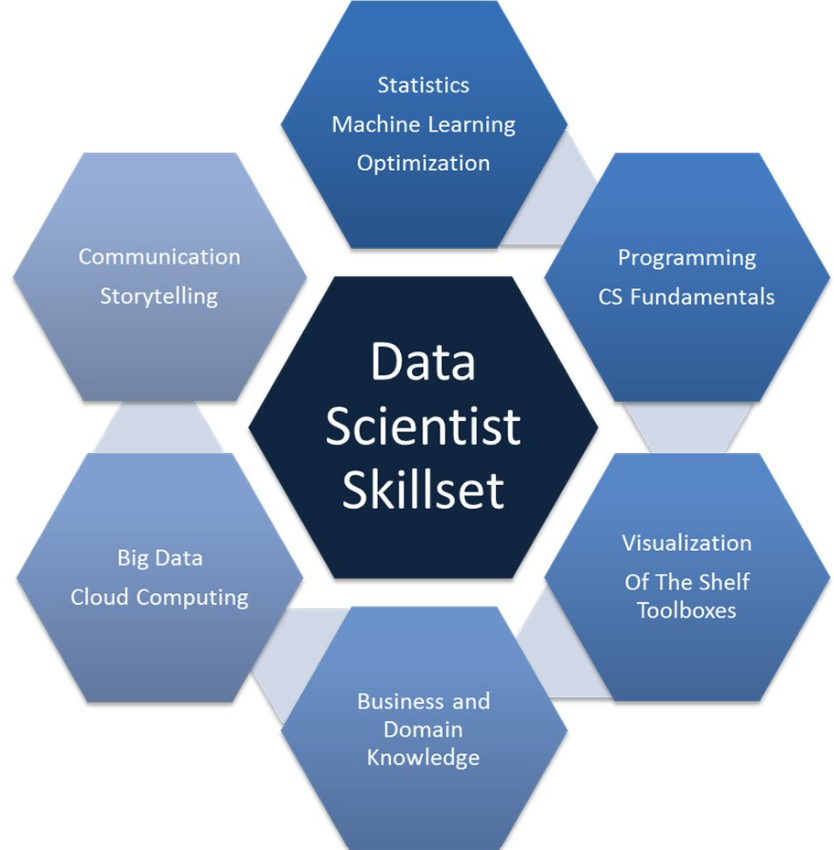Navigating the ever-changing world of data science can be daunting for aspiring professionals, but the opportunities are endless. With the demand for data scientists booming, building a strong and diverse skill set is crucial for success in this complex field. This article explores the key skills you'll need to master to thrive in the dynamic world of data analytics.
Statistical Literacy: A Foundation of Insightful Analysis
Statistical literacy is the cornerstone of data science. A profound understanding of statistical concepts empowers data scientists to derive meaningful insights, make informed decisions, and construct robust models.
How to Develop it?
- Immersive Learning: Enroll in online courses or attend workshops covering statistical fundamentals, such as hypothesis testing, regression analysis, and probability.
- Practical Application: Apply statistical principles to real-world datasets through hands-on projects, fostering a deeper comprehension of their practical implications. For instance, consider a scenario where a retail company is analyzing customer purchasing patterns. Statistical literacy enables the data scientist to conduct hypothesis tests, revealing significant insights into customer preferences and driving targeted marketing strategies.
Programming Proficiency: The Language of Data Manipulation
Proficiency in programming languages is a non-negotiable skill for data scientists. The ability to code facilitates data manipulation, analysis, and the implementation of complex algorithms.
How to Develop it:
- Master Core Languages: Develop proficiency in core languages, with a focus on Python and R, which are widely embraced in the data science community.
- Problem-Solving Challenges: Engage in coding challenges on platforms like LeetCode or HackerRank to sharpen your problem-solving skills and enhance your coding prowess. For instance, imagine a data scientist tasked with building a recommendation system for an e-commerce platform. Proficiency in programming languages allows them to implement intricate algorithms, providing personalized product recommendations based on user behavior.
Data Cleaning and Preprocessing: Ensuring Data Quality
Raw data is often imperfect, laden with inconsistencies and missing values. The ability to clean and preprocess data ensures the quality of subsequent analyses and models.
How to Develop it:
- Real-world Challenges: Tackle real-world data cleaning challenges through projects that involve handling messy datasets.
- Utilize Tools: Master data manipulation tools like Pandas and NumPy, which facilitate efficient data cleaning and preprocessing. E.g, in a healthcare setting, a data scientist working with patient records must navigate through datasets containing missing or inconsistent information. Proficient data cleaning ensures accurate and reliable insights for healthcare practitioners and policymakers.
Data Visualization: Communicating Insights Effectively
Data scientists must possess the art of effective communication through data visualization. Compelling visualizations aid in conveying complex insights to diverse stakeholders.
How to Develop it:
- Visualization Libraries: Acquaint yourself with popular visualization libraries such as Matplotlib, Seaborn, and Plotly.
- Critique and Learn: Analyze and critique visualizations from various sources to understand the principles behind impactful data presentation.
Example: Consider a finance analyst using visualizations to communicate complex financial trends to company stakeholders. Clear visualizations enable quick comprehension of data, aiding in strategic decision-making.
Machine Learning: Unleashing Predictive Power
Machine learning empowers data scientists to build predictive models, uncover patterns in data, and derive actionable insights.
How to Develop it:
- Fundamental Courses: Undertake comprehensive courses covering machine learning fundamentals, exploring algorithms, model evaluation, and optimization.
- Application Projects: Apply machine learning algorithms to real-world problems through projects, honing your practical skills. In the case of predictive maintenance for manufacturing, a data scientist utilizes machine learning to forecast equipment failures, enabling proactive maintenance and reducing downtime.
Business Acumen: Aligning Data Science with Organizational Goals
Data scientists need more than technical skills; they require an understanding of the business context to align their analyses with organizational objectives.
How to Develop it:
- Industry Research: Stay informed about industry trends, challenges, and the broader business landscape.
- Collaborate with Stakeholders: Collaborate with business stakeholders to comprehend their needs, ensuring that data analyses contribute meaningfully to strategic goals.
Example: Consider a data scientist in the healthcare sector analyzing patient outcomes. Business acumen enables them to align data analyses with healthcare provider goals, improving patient care and operational efficiency.
7. Continuous Learning: Adapting to an Ever-evolving Field
The field of data science is characterized by rapid advancements. A commitment to continuous learning is indispensable for staying ahead of emerging trends and technologies.
How to Develop it:
- Online Communities: Join data science communities, participate in forums, and engage with industry professionals to stay updated on the latest developments.
- Professional Development: Attend conferences, workshops, and webinars to gain insights from thought leaders and industry experts, fostering a culture of continuous improvement.
Example: Imagine a data scientist staying abreast of developments in natural language processing. Continuous learning enables them to incorporate cutting-edge techniques into sentiment analysis models, enhancing the accuracy of customer feedback analysis for a tech company.
In Conclusion:
Mastering the craft of data science is an ongoing journey that demands a holistic approach to skill development. By cultivating these essential skills—ranging from statistical literacy to business acumen— aspiring data scientists can position themselves for success in this dynamic and rewarding field. Stay committed to continuous learning, embrace challenges, and welcome the data-driven future with confidence. Happy learning!




0 Comments